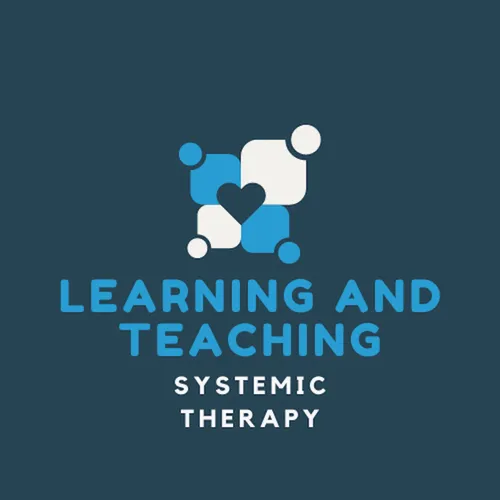Ep 13: Integrating Systemic Therapy & Somatic Practice: Dr. Tequilla Hill on Therapist Self-Care, Creative Healing, and Teaching MFT
- Author
- Society for the Teaching of Marriage and Family Therapy
- Published
- Mon 01 Sep 2025
- Episode Link
- https://georgiadou.podbean.com/e/ep-13-integrating-systemic-therapy-somatic-practice-dr-tequilla-hill-on-therapist-self-care-creative-healing-and-teaching-mft/
Today's guest is the amazing Dr. Tequilla Hill! She is a licensed systemic psychotherapist, seasoned somatic educator, healing artist, and mindful entrepreneur with over 20 years of experience in wellness and behavioral health. Grounded in systemic psychotherapy and somatic practices, she integrates talk therapy, meditation, breathwork, and somatic movement to support emotional healing, nervous system regulation, and relational restoration.
As a healing artist, Dr. Hill incorporates expressive arts, somatic movement, visual art, and writing into her clinical and educational work to deepen emotional expression and support embodied transformation. She is proud to come from a family of artists and creatives and feels honored to carry that legacy forward by weaving these elements into her therapeutic and teaching practice.
Rooted in compassion and presence, Dr. Hill walks alongside therapists and wellness seekers alike, guiding them toward practices that nurture sustainable self-care, emotional healing, and a grounded sense of well-being. She consults, teaches, and leads with intention, offering experiences that restore clarity and vitality. Her passion for well-being, movement, and emotional wellness also led her to center her doctoral dissertation on therapist self-care, a topic she continues to champion in her work today.
She holds a PhD and MS in Marriage and Family Therapy from Nova Southeastern University, a BA in Psychology from Florida Atlantic University, and an AA in Liberal Arts from Broward College. Dr. Hill is a sought-after therapist, wellness consultant, and mindfulness facilitator known for her integrative and compassionate approach.
In this episode, we will explore Dr. Hill’s experiences with self-care, sustainable practice, and the power of creative and embodied healing for both therapists and the families they serve.
Dr. Tequilla Hill's website: https://www.drtequilla.net/
Questions we discussed in this episode:
- Your journey from experiencing burnout in community mental health to becoming a leader in integrative MFT training is fascinating. How did your personal discovery of yoga, meditation, and breathwork transform not just your own practice, but your vision for how we should be training marriage and family therapists? What made you realize these weren't just personal wellness tools, but critical for our clinical competency?
- You integrate breathwork, nervous system regulation, and body awareness into family therapy training. Can you walk us through how a student learns to use their own somatic responses as clinical information?
- You're in academic leadership, so you're in a unique position to influence how MFT educators think about embodied teaching and supervision. How do you model somatic awareness in faculty meetings, supervision, and program development? What does it look like when academic leadership operates from principles of nervous system regulation and mindful presence?
- Traditional MFT training often prioritizes technique mastery and theoretical knowledge. When you introduce breathwork, meditation, and somatic interventions, do you encounter resistance from students or colleagues who see these as 'soft' or non-essential? How do you help people understand that these are rigorous skills, not just wellness add-ons?
- Your work centers cultural humility and social justice. How does developing somatic awareness enhance a therapist's cultural responsiveness? Can you give us an example of how breathing techniques or body awareness might help a therapist navigate cultural differences or power dynamics in family therapy sessions?
- In your role training supervisors, how do you teach them to use their own regulated nervous systems to help supervisees develop clinical skills? Can you describe what co-regulation looks like in MFT supervision, and how it differs from traditional cognitive-focused supervision approaches?
- While your current MFT academic work takes place primarily online, your approach remains deeply embodied. How do you teach breathwork, somatic awareness, and physical presence through virtual platforms? What strategies have you discovered for maintaining the body-based aspects of training in our digital, often asynchronous, environments?
Huge thanks to our sponsor, SimCare AI, for supporting the Learning & Teaching Systemic Therapy podcast. SimCare AI creates lifelike AI clients so counseling and MFT students can practice full-length sessions, get instant feedback, and build competencies at scale, with cases that can align to your specific program rubrics and courses. Learn more or book a demo at SimCare AI. Instructor accounts are free. :)
